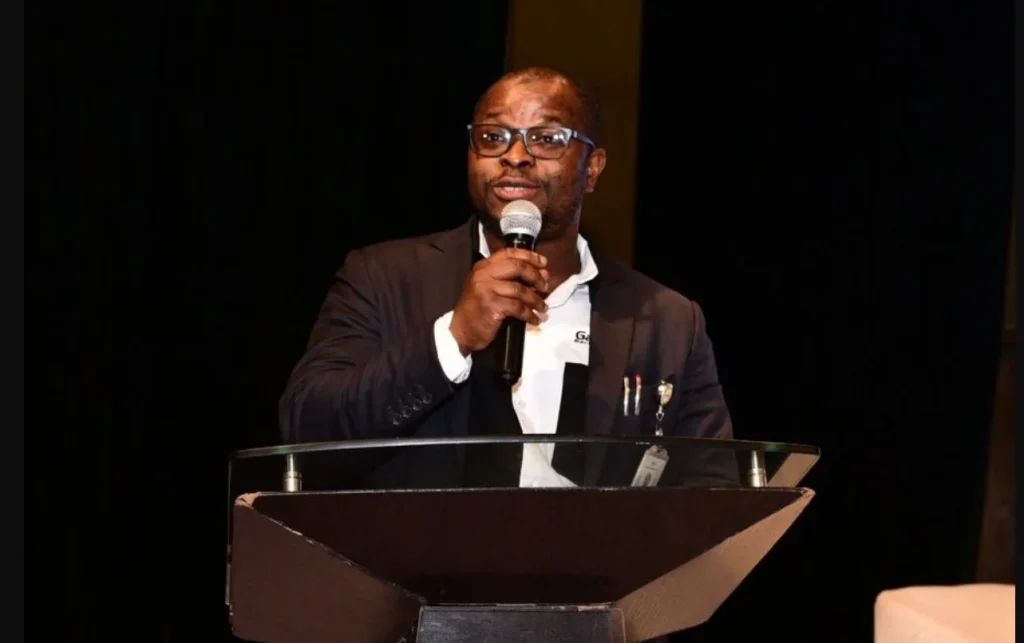FG Lays Over 5,000km Fibre Optic Cable Across 28 States — Galaxy Backbone MD
Nigeria’s federal government has laid more than 5,000 kilometres of fibre optic cable across 28 states, significantly boosting the country’s digital connectivity under the National Information Communication Technology Infrastructure Backbone (NICTIB) project. The announcement was made by Professor Ibrahim Adeyanju, Managing Director of Galaxy Backbone (GBB), at the 15th ICTEL Expo 2025 in Lagos.
Held under the theme “Leveraging Technology for Innovation and Development in Africa”, the event highlighted how Nigeria is laying a strong foundation for digital governance, entrepreneurship, and economic growth.
A Nationwide Digital Backbone for Connectivity and Innovation
According to Prof. Adeyanju, the fibre infrastructure now links:
- State capitals
- Federal institutions
- Ministries, Departments, and Agencies (MDAs)
- Private sector players
All connectivity points are centrally managed by Galaxy Backbone. He emphasised that the agency is “not stopping at routers and cables,” but is building a platform for digital governance that will drive innovation across sectors.
Galaxy Backbone Operates Africa’s Largest Public Data Centre Network
Galaxy Backbone currently operates the largest publicly owned data centre network in Africa, certified to Tier III and Tier IV standards by the Uptime Institute. These world-class facilities give Nigerian businesses, government agencies, and startups access to:
- Secure, high-availability data hosting
- Cloud services and enterprise platforms
- Digital services previously only accessible via international providers
Critical Infrastructure for Cybersecurity and Innovation
In addition to physical connectivity, GBB’s infrastructure includes:
- A 24/7 Network Operations Centre (NOC)
- A cutting-edge Security Operations Centre (SOC)
These centres offer robust cybersecurity features, including:
- Threat detection and response
- Endpoint protection
- Brand integrity monitoring
This security backbone supports Nigeria’s growing digital governance ecosystem and provides a safe space for innovators to build, scale, and deploy solutions confidently.
Infrastructure Empowers Innovation, Says GBB MD
“Infrastructure doesn’t innovate, but it empowers innovators,” said Prof. Adeyanju. “When developers know they can deploy solutions on reliable networks, when startups can build without fear of downtime, and when digital services are consistent — that’s when real innovation, scale, and entrepreneurship thrive.”
Broadband = Economic Growth
Referencing World Bank data, Prof. Adeyanju emphasised the economic case for broadband expansion:
“A 10% increase in broadband penetration leads to a 1.38% increase in GDP for developing nations.”
He also cited the International Telecommunications Union’s (ITU) Digital Development Index, which places Nigeria in the lower-middle readiness tier. According to him, this status shows both a need and an opportunity to leapfrog through focused investments in ICT.
The Power of Collaboration in Driving National ICT Growth
Prof. Adeyanju called for greater collaboration between:
- Government
- Private sector
- Tech hubs
- Development partners
- Academic institutions
“No one entity can solve Nigeria’s infrastructure challenges alone,” he said. “At Galaxy Backbone, we are opening our infrastructure to partnerships that align with national interests and innovation capacity.”
He stressed that full utilisation of Nigeria’s ICT infrastructure could:
- Launch innovative startups
- Enhance e-learning and telemedicine
- Strengthen national cybersecurity
- Support AI, robotics, and research initiatives
Final Thoughts
The federal government’s fibre optic rollout under NICTIB is not just about internet access—it’s about building a secure, innovation-ready, and economically empowered Nigeria. With strategic investments and collaborative partnerships, Nigeria is well-positioned to scale its digital infrastructure into a powerful engine for inclusive growth.



